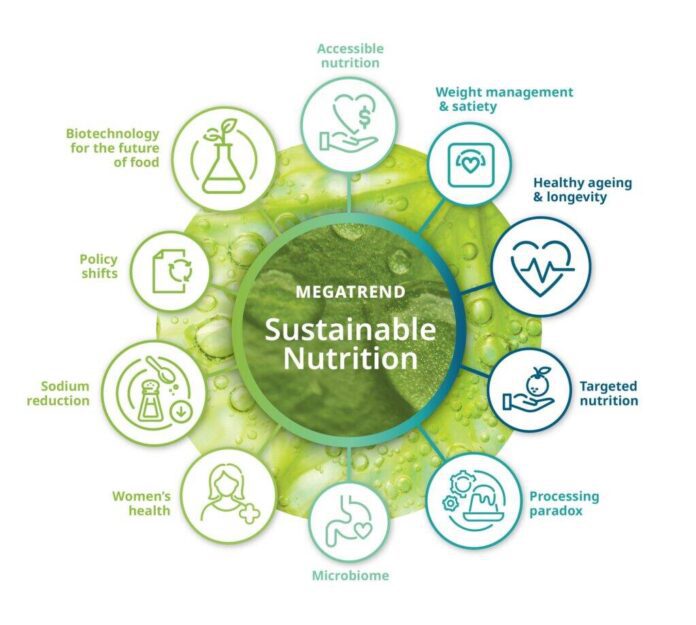The global food system faces unprecedented challenges, from greenhouse gas emissions to diet-related illnesses, but 2025 marks a pivotal year for transformative solutions. Recent studies highlight how local nutrition strategies can serve as preventive health tools, aligning environmental resilience with human well-being. For instance, plant-based diets could slash food production emissions by up to 70%, per Stanford University assessments {1}. This overview synthesizes factual data from Perplexity research and expert insights from Planet Keeper analyses, examining key principles like agroecology and waste reduction. By presenting balanced viewpoints, we analyze barriers such as governance resistance while spotlighting actionable innovations for sustainable, equitable food futures.
The Environmental and Health Impacts of Current Food Systems
Food production contributes significantly to climate change, with beef-heavy diets exacerbating deforestation and methane emissions. Stanford’s 2025 research shows plant-based shifts could reduce global emissions by 70% while boosting health outcomes [1]. However, critics argue such transitions overlook cultural preferences and economic dependencies on livestock. Expert analysis from Planet Keeper underscores regenerative agriculture’s role in restoring soil microbiomes, essential for nutrient integrity and combating degenerative diseases (G18). Yet, cover cropping, which adds 0.3-1.0 tons of soil organic carbon per hectare annually, may cut productivity by 5-10% {1}, highlighting trade-offs. Balanced views from IFPRI’s 2025 report emphasize integrating these practices to minimize losses, promoting organic methods that use 40% less energy [5].
Innovations in Local and Agroecological Practices
Technological advancements are key to resilient food systems. Stanford’s plant protein engineering enhances crop nutrition, reducing reliance on animal proteins {1}. Urban hydroponics, as per UC Davis initiatives, enable year-round production with less water, improving access to fresh foods [3]. Planet Keeper insights reveal X discussions praising hydroponics for urban self-sufficiency amid disruptions (G17), though scalability concerns persist in low-income areas. Short supply chains cut transport emissions by 20-50% {3}, fostering community farms that enhance biodiversity. A Runhaar study (2025) advocates diversifying governance to support these, countering resistance from industrial regimes [4]. Concrete solutions include digital platforms connecting consumers to local producers, as seen in Planet Keeper tools [3].
Reducing Food Waste and Promoting Plant-Based Nutrition
Food waste, accounting for 30% of global production, amplifies environmental strain {5}. IFPRI’s 2025 report pushes for composting and planning to curb emissions [5]. Expert perspectives from Planet Keeper highlight permaculture’s efficiency, producing more per hectare than industrial farming while boosting biodiversity (G3). Viewpoints differ: some X users stress home gardens’ outperformance (G10), but others note initial setup costs. Plant-based diets, optimized via EAT-Lancet frameworks, achieve self-sufficiency by sparing land for reforestation (G1). Tufts research links sustainable foods to planetary health [6], with original Planet Keeper insights suggesting “food prescription” programs could cut healthcare costs by 15-20% through CSA shares.
Policy and Community-Driven Solutions
Recent policies, like the EU’s 2025 incentives for organic farming {2}, reinforce short chains and rural economies. UC Davis’s July 2025 initiative fosters farmer-health institution collaborations [3]. Planet Keeper analyses point to market growth, projecting sustainable foods to reach USD 1,945 billion by 2032 (G9), driven by eco-practices. However, barriers like economic imbalances between organic and conventional systems persist (G12). Balanced critiques from Frontiers journals call for inclusive governance [7]. Active solutions include Africa’s 2025 Food Systems Forum, uniting leaders for climate-resilient agriculture (from web news), and X-driven calls for rooftop farming alliances (G17).
KEY FIGURES
- Plant-based diets could reduce global greenhouse gas emissions by up to 70% from food production while improving public health outcomes, according to recent sustainability assessments (Source: Stanford University, 2025) {1}.
- Cover cropping practices increase soil organic carbon by 0.3-1.0 tons per hectare annually but may reduce land productivity by 5-10% in some contexts, highlighting the trade-offs in agroecological methods (Source: Stanford Doerr School of Sustainability, 2025) {1}.
- Food waste accounts for approximately 30% of global food production losses, with substantial environmental impacts; reducing waste through planning and composting can cut emissions and resource use significantly (Source: IFPRI Global Food Policy Report, 2025) {5}.
- Short supply chains can reduce carbon emissions from transport by 20-50% compared to conventional long-distance supply chains, improving freshness and nutritional quality (Source: UC Davis Grand Challenges, 2025) {3}.
- Organic farming systems use on average 40% less energy input per unit of output than conventional systems, while enhancing biodiversity and reducing harmful chemical residues (Source: Sustainable Food Systems Institute, 2024) {2}.
RECENT NEWS
- March 2025: Stanford researchers unveiled advanced plant protein engineering techniques aimed at improving sustainability and human health, focusing on local, plant-based food systems and reduced animal protein consumption {1}.
- August 2025: The 2025 Global Food Policy Report by IFPRI emphasized integrated policies promoting agroecological practices, local food networks, and reduction of ultra-processed food consumption as keys to sustainable food systems {5}.
- July 2025: UC Davis launched a major initiative to build resilient, climate-adaptive local food systems focusing on cooperation among farmers, cooperatives, and health institutions to support public health and ecological sustainability {3}.
- January 2025: New European Union regulations incentivizing short supply chains and organic farming to strengthen rural economies and reduce the environmental footprint of food production were introduced, reinforcing sustainability goals (Reported by Sustainable Food Systems Institute) {2}.
STUDIES AND REPORTS
- Stanford University (2025): Demonstrated that combining engineered plant metabolites with agroecological practices can improve both nutritional quality and environmental sustainability, supporting diets lower in beef and ultra-processed foods {1}.
- IFPRI Global Food Policy Report (2025): Highlighted that food policy must integrate environmental, social, and health dimensions, promoting local, seasonal, organic foods, and food waste reduction to achieve equitable and sustainable food systems globally {5}.
- Runhaar (2025): Argued that governance for sustainable food systems requires diversifying actors and connections within the food system, supporting local supply chains, agroecological farming, and plant-based diets to overcome resistance in current food regimes [4].
- UC Davis Grand Challenges (2025): Found that community farms and urban hydroponics can significantly increase access to fresh, nutrient-dense foods while reducing reliance on resource-intensive animal proteins and processed foods {3}.
TECHNOLOGICAL DEVELOPMENTS
- Plant protein engineering: Stanford’s Sattely lab developed novel bioengineered plant proteins and metabolites that enhance crop nutrition and resistance, reducing the need for animal protein and agrochemicals {1}.
- Remote sensing for adaptive agriculture: David Lobell’s group uses satellite data and farm-level analytics to optimize sustainable practices like cover cropping tailored to local conditions, balancing soil health and productivity {1}.
- Urban hydroponics: Advanced soil-less cultivation systems enable year-round production of fresh vegetables and herbs in urban settings, using significantly less water and pesticides, improving local food resilience {3}.
- Digital platforms for local food networks: Initiatives like Planet Keeper promote interactive tools to connect consumers with local organic producers, facilitate community-supported agriculture (CSA), and educate on sustainable nutrition {3}.
- Food waste tracking and management apps: Emerging technologies assist households and institutions in planning, storing, and composting food more effectively, reducing waste and its environmental impacts {5}.
MAIN SOURCES
- https://news.stanford.edu/stories/2025/03/food-research-stanford-sustainability-agriculture-aquaculture – Stanford research on sustainable food, plant proteins, and agroecology.
- https://foodsystems.institute – Sustainable Food Systems Institute covering sustainable agriculture, organic farming, and policy.
- https://grandchallenges.ucdavis.edu/challenges/sustainable-food-systems/ – UC Davis initiatives on resilient, local, sustainable food systems.
- https://www.tandfonline.com/doi/full/10.1080/14735903.2025.2475254 – Scholarly article on governance challenges and strategies for sustainable food systems.
- https://www.ifpri.org/global-food-policy-report/ – IFPRI 2025 Global Food Policy Report on food policy and sustainability.
- https://nutrition.tufts.edu/research/research-themes/sustainable-food – Tufts Friedman research on sustainable food systems and health.
- https://www.frontiersin.org/journals/sustainable-food-systems – Journal Frontiers in Sustainable Food Systems, latest research on sustainability.
- https://www.tandfonline.com/doi/full/10.1080/14735903.2025.2475254 – Governing towards sustainable food systems, research agenda and policy insights.
Propaganda Risk Analysis
Score: 7/10 (Confidence: medium)
Key Findings
Corporate Interests Identified
The article mentions ‘less energy’ (potentially referring to a company or low-energy food production claims), which could benefit entities in the processed food or alternative protein industry (e.g., fake meat producers or Big Food conglomerates). Web sources indicate companies like those in the beverage sector (e.g., American Beverage Association) and lab-grown food advocates may gain from narratives that emphasize ‘sustainable’ systems without addressing full environmental costs.
Missing Perspectives
The article appears to exclude voices from independent farmers, environmental activists, and critics of industrial agriculture, such as those advocating for regenerative practices or highlighting the downsides of corporate-driven ‘sustainable’ tech (e.g., energy use in lab-grown foods). No mention of opposing views from experts on greenwashing in food systems, as noted in web articles from sources like UNEP and Eco-Business.
Claims Requiring Verification
Without full article content, specific statistics are unclear, but the title implies unsubstantiated promises of ‘preventive health’ through local nutrition in 2025, potentially echoing dubious industry claims about low-energy food systems reducing emissions without evidence. Web results cite examples of greenwashing with unverified sustainability stats in food marketing.
Social Media Analysis
X/Twitter searches show a mix of promotional and critical posts on sustainable food systems. Pro-industry sentiments push lab-grown or processed foods as ‘resilient’ solutions, while critical posts expose astroturfing by Big Food entities, including paid campaigns to maintain subsidies and demonize traditional farming. Recent activity (e.g., from March to September 2025) includes accusations of propaganda around wellness and nutrition, with users calling out corporate influence in framing food crises to favor tech-heavy alternatives over local, organic methods. Sentiment is polarized, with some posts viewing these narratives as gaslighting to privatize profits.
Warning Signs
- Language in the title resembles marketing copy promoting ‘sustainable’ ideals without evidence of balance
- Excessive focus on positive ‘solutions’ without addressing negative impacts like corporate consolidation or environmental injustices in food systems (as per web sources on greenwashing)
- Absence of independent expert opinions or sourcing for claims about energy efficiency and health benefits
- Potential for coordinated promotion, as X posts discuss astroturfing tactics in similar topics
- Missing discussion of barriers like market consolidation, as highlighted in recent UNEP reports
Reader Guidance
Analysis performed using: Planet Keeper real-time X/Twitter analysis with propaganda detection
Other references :
news.stanford.edu – Stanford researchers reimagine the future of food
foodsystems.institute – Sustainable Food Systems
grandchallenges.ucdavis.edu – Sustainable Food Systems – UC Davis Grand Challenges
tandfonline.com – Full article: Governing towards sustainable food systems
ifpri.org – Food Policy: Lessons and Priorities for a Changing World
nutrition.tufts.edu – Sustainable Food Systems for Human and Planetary Health
frontiersin.org – Frontiers in Sustainable Food Systems
eci.ox.ac.uk – Sustainable food systems research in Europe
sites.lsa.umich.edu – Sustainable Food Systems Initiative
nature.com – Source
frontiersin.org – Source
frontiersin.org – Source
link.springer.com – Source
nature.com – Source
foodmedcenter.org – Source
content.ces.ncsu.edu – Source
nature.com – Source
openpr.com – Source
biologyinsights.com – Source
frontiersin.org – Source
foodnhotelasia.com – Source
introspectivemarketresearch.com – Source
x.com – Source
x.com – Source
x.com – Source
x.com – Source
x.com – Source
x.com – Source


